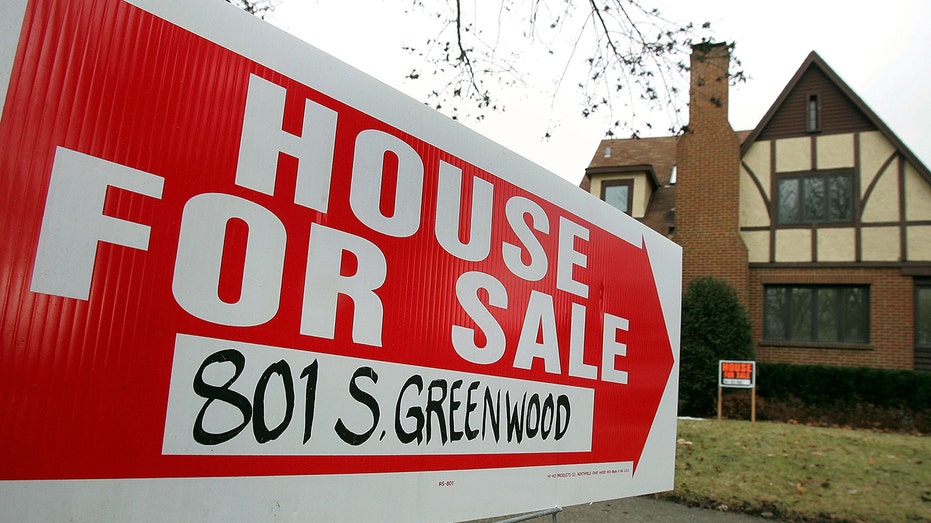Regal Cinemas owner considers bankruptcy, Fed's possible next rate hike and more: Tuesday's 5 things to know
Expect second-quarter earnings figures from Macy's, Dick's Sporting Goods, Nordstrom, Intuit and homebuilder Toll Brothers
Here are the key events taking place on Tuesday that could impact trading.
BANKRUPTCY CONSIDERATION: Cineworld, the owner of Regal Cinemas, confirmed on Monday it is considering filing for Chapter 11 bankruptcy in the U.S. and "associated ancillary proceedings in other jurisdictions" amid an ongoing evaluation of strategic options.
"Any such filing would be expected to allow the Group to access near-term liquidity and support the orderly implementation of a fully funded deleveraging transaction," the movie theater chain said in an update on Monday. "Cineworld would expect to maintain its operations in the ordinary course until and following any filing and ultimately to continue its business over the longer term with no significant impact upon its employees."
The update comes after The Wall Street Journal reported on Friday that a possible bankruptcy filing could come "within weeks" and that Kirkland & Ellis LLP and AlixPartners have been tapped as advisors on the process.
AMC CEO OPTIMISTIC ON FUTURE AS RIVAL CINEWORLD SHARES SINK

Cineworld, the owner of Regal Cinemas based in the UK, is considering filing for Chapter 11 bankruptcy. (Susannah Ireland/AFP via Getty Images) / Getty Images) / Getty Images)
Kirkland & Ellis LLP and AlixPartners did not immediately return FOX Business' request for comment. Cineworld declined to comment.
Cineworld shares fell more than 50% on Friday following the Journal's report.
The consideration of Chapter 11 bankruptcy comes after Cineworld said last week that recent admission levels are below expectations despite a gradual recovery in demand since reopening its theaters in April 2021.
It expects the lower admission levels to continue through November 2022 due to a limited film slate.
HOW BIG IS NEXT RATE HIKE?: The Federal Reserve is likely to deliver another super-sized interest rate hike in September, but it could be the last of that magnitude this year as growth starts to slow, according to JPMorgan Chase strategists.
In an analyst note on Monday, JPMorgan strategists led by Mislav Matejka said they expect the trade-off between growth and monetary policy to improve in the coming months as the Fed pivots toward smaller rate hikes.
"We expect another outsized Fed hike in September, but post that we would look for the Fed not to surprise the markets on the hawkish side again," they wrote.
Officials approved two back-to-back 75-basis point interest rate hikes in June and July – triple the usual size – and hinted that another increase of that magnitude is on the table in September, depending on the economic data. The minutes show that officials expect to approve a smaller 50-point increase in September, although they acknowledged the pace depends on the data.
INFLATION IS STILL WIPING OUT THE AVERAGE AMERICANS' WAGE GAINS

Federal Reserve Chairman Jerome Powell speaks to the Senate Banking, Housing and Urban Affairs Committee, as he presents the Monetary Policy Report to the committee on Capitol Hill, June 22, 2022, in Washington. (AP Photo/Manuel Balce Ceneta / AP Newsroom / AP Newsroom)
Minutes released last week from the Fed's July meeting show that officials are likely to remain on a hawkish course, despite hopes from markets in recent weeks that policymakers could slow the pace of rate hikes.
"Participants agreed that there was little evidence to date that inflation pressures were subsiding," the minutes said. "They judged that inflation would respond to monetary policy tightening and the associated moderation in economic activity with a delay and could remain uncomfortably high for some time."
While the rapid pace of price increases eased slightly in July with the monthly increase flat at 0%, the consumer price index still climbed 8.5% from the previous year – hovering near a painful, four-decade high, the Labor Department reported last week. Markets rallied on the lighter-than-expected report, with investors hoping the Fed could take its foot off the gas in the coming months.
Stronger-than-expected data, including solid retail sales reported last week and a blowout July jobs report, could make the case for another mega-sized rate hike next month.
HOME SALES DATA: A key housing report awaits investors Tuesday showing single-home sales for July.
At 10 a.m. ET, the Census Bureau is expected to say sales of new single-family homes fell 2.5% in July to a seasonally adjusted annual rate of 575,000.

A "House For Sale" sign is visible in front of an existing home in Park Ridge, Illinois. (Tim Boyle/Getty Images / Getty Images)
That figure would be the lowest in more than 3 ½ years (since December 2018) and the sixth decline in seven months as elevated mortgage rates and high prices shut many homebuyers out of the market.
EARNINGS REPORTS WINDING DOWN: The parade of retail earnings continues Tuesday, with Macy’s and Dick’s Sporting Goods posting ahead of the opening bell, while Nordstrom, Advance Auto Parts and Urban Outfitters report after the closing bell.
But it’s not all about retail.
We’ll also hear from medical device maker Medtronic and food companies JM Smucker and Dole in the morning, and tax preparation software maker Intuit and homebuilder Toll Brothers in the afternoon.
| Ticker | Security | Last | Change | Change % |
|---|---|---|---|---|
| M | MACY'S INC. | 21.47 | -1.23 | -5.42% |
| DKS | DICK'S SPORTING GOODS | 201.91 | -6.38 | -3.06% |
| JWN | NO DATA AVAILABLE | - | - | - |
| AAP | ADVANCE AUTO PARTS INC. | 55.30 | 0.00 | 0.00% |
| URBN | URBAN OUTFITTERS INC. | 71.18 | -1.29 | -1.78% |
| MDT | MEDTRONIC PLC | 101.65 | -1.25 | -1.21% |
| SJM | THE J. M. SMUCKER CO. | 107.46 | -2.05 | -1.87% |
| DOLE | DOLE PLC | 15.85 | -0.38 | -2.34% |
| INTU | INTUIT INC. | 437.50 | -6.27 | -1.41% |
| TOL | TOLL BROTHERS INC. | 152.26 | -1.02 | -0.67% |
Nearly all the companies in the S&P 500 (478 as of Monday evening) have reported quarterly results, with earnings and revenue numbers coming in materially ahead of reduced expectations.
FED AND INFLATION FEARS: Fears of additional sharp interest-rate increases by the Federal Reserve are taking some of the wind out of this summer's stock-market rally.
The Dow Jones Industrial Average tumbled more than 600 points on Monday as investors looked ahead to a Friday speech by Fed Chairman Jerome Powell in Jackson Hole, Wyo., in which he is expected to give an update on the central bank's efforts to combat inflation.
Monday's selloff came after U.S. stocks snapped a four-week stretch of gains for the S&P 500 on Friday. The market climbed from July to mid-August on hopes that inflation has started to peak, which would allow the Fed to soften its stance, as well as on generally strong corporate earnings.
But Fed officials have remained publicly hawkish, leading some investors to conclude that the rebound was premature. The market's outlook also remains highly uncertain as investors weigh positive news – such as strong job growth – against worries that Fed tightening could tip the economy into recession.

Traders work on the floor at the New York Stock Exchange in New York, Wednesday, Aug. 10, 2022. (AP Photo/Seth Wenig / AP Images)
"The market wants the Fed to sound off on the dovish standpoint, but the Fed's not there yet," said Philip Blancato, chief executive of Ladenburg Thalmann Asset Management. "The market got a little ahead of itself."
The Dow fell 643.13 points on Monday, or 1.9%, to close at 33063.61. The S&P 500 dropped 90.49, or 2.1%, to 4137.99. The technology-focused Nasdaq Composite slid 323.64, or 2.5%, to 12381.57.
Even with the recent pullback, all three major indexes are up at least 5.8% over the past three months.
CLICK HERE TO READ MORE ON FOX BUSINESS
Futures markets show traders are split as to whether the central bank will raise interest rates by half a percentage point or three-quarters of a point at its next meeting in September. Aggressive increases could cause businesses and consumers to cut back on spending, potentially hurting corporate earnings and economic growth.




















